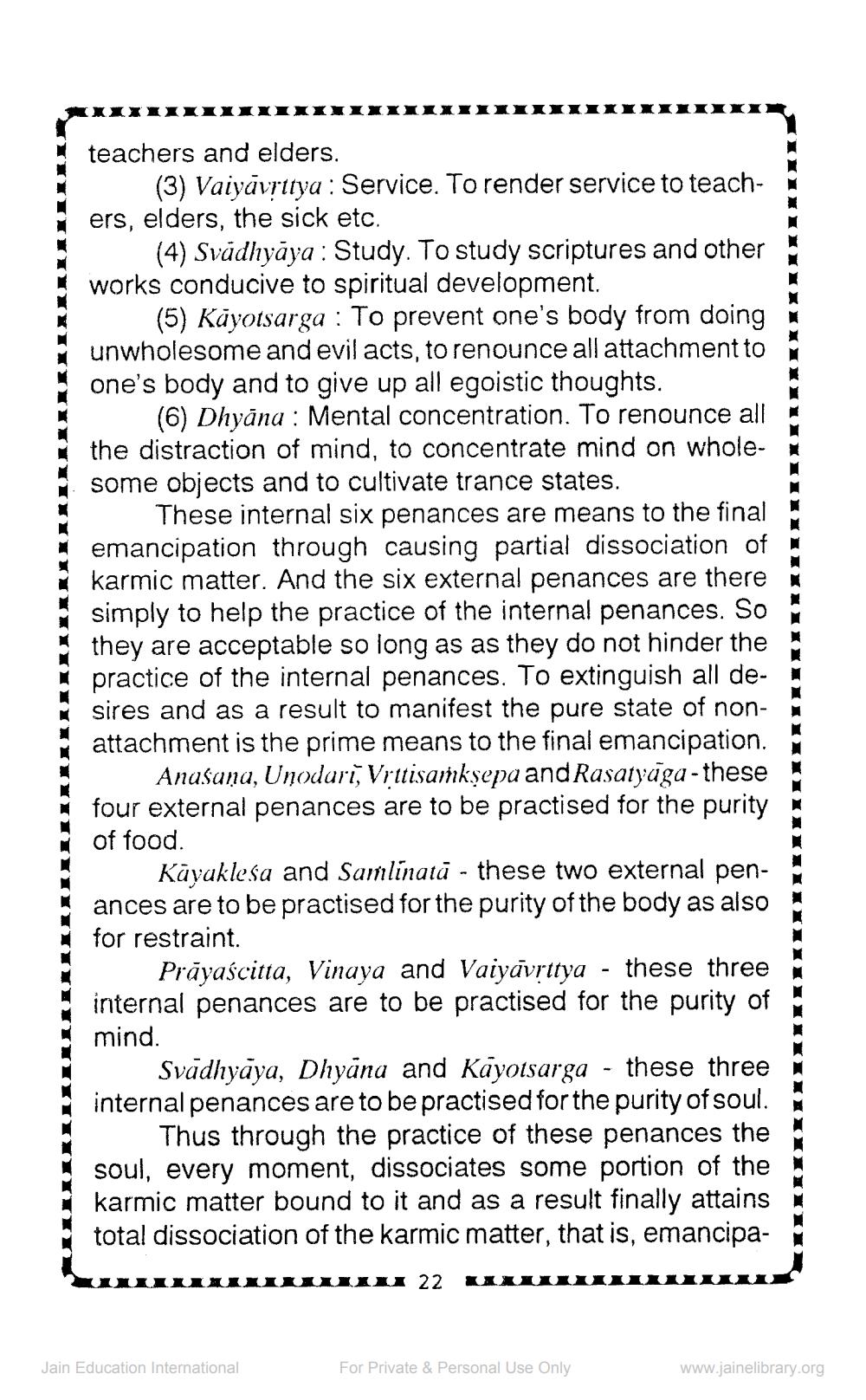________________
teachers and elders.
(3) Vaiyavrttya : Service. To render service to teachers, elders, the sick etc.
(4) Svādhyāya : Study. To study scriptures and other works conducive to spiritual development.
(5) Kāyotsarga : To prevent one's body from doing unwholesome and evil acts, to renounce all attachment to one's body and to give up all egoistic thoughts.
(6) Dhyāna : Mental concentration. To renounce all the distraction of mind, to concentrate mind on wholesome objects and to cultivate trance states.
These internal six penances are means to the final emancipation through causing partial dissociation of karmic matter. And the six external penances are there simply to help the practice of the internal penances. So they are acceptable so long as as they do not hinder the practice of the internal penances. To extinguish all desires and as a result to manifest the pure state of nonattachment is the prime means to the final emancipation.
Anasaņa, Unodari, Vrttisarksepa and Rasatyūga-these four external penances are to be practised for the purity of food.
Kāyuklesa and Samlinatā - these two external penances are to be practised for the purity of the body as also for restraint.
Prāyaścitta, Vinaya and Vaiyavrttya - these three internal penances are to be practised for the purity of mind.
Svādhyaya, Dhyāna and Kayotsarga - these three internal penances are to be practised for the purity of soul.
Thus through the practice of these penances the soul, every moment, dissociates some portion of the karmic matter bound to it and as a result finally attains total dissociation of the karmic matter, that is, emancipa
WILAI IKI 22 XXXIIIIIIIIIII
Jain Education International
For Private & Personal Use Only
www.jainelibrary.org




